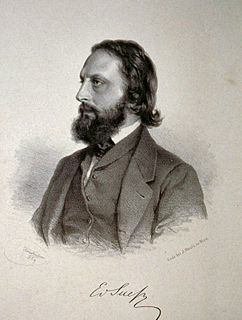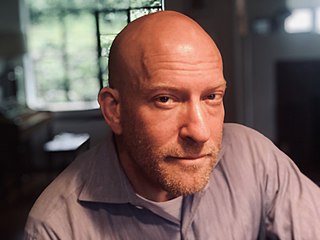Top 875 Inequality Quotes & Sayings - Page 15
Explore popular Inequality quotes.
Last updated on April 20, 2025.
In our current society, it is considered a weakness to be female and a treason to protest this. Highlighting inequality results in aggressive insults and threats, all of which are propped up by the repeated narrative now that women are 'playing the gender card'. And this is the final insult. That of all the unfair things associated with women - the violence and insults, the financial oppression, the very undermining of our worth as human beings - it is the acknowledgement of these inequalities that gives us some kind of unfair advantage over the men who benefit from them.
We're living through an era of higher income inequality than the country has experienced since before the Great Depression. Meanwhile, most people are running in place, and those in the bottom quintile of the economy are being swept backward year in and year out. A worker with a high school education today is likely to earn less in real terms than did their parents and grandparents in the early 1970s. Not coincidentally, while overall life expectancy is increasing in America, for those with low levels of education it's actually declining.
It is no exaggeration to say that rising inequality has driven many of the 99 percent into a financial ditch. It also helped spawn the housing bubble that gave us the financial crisis of 2008, the lingering effects of which have forced many OWS protesters to try to launch their careers in by far the most inhospitable labor market we've seen since the Great Depression. Even those recent graduates who manage to find jobs will suffer a lifelong penalty in reduced wages.
Anger is a little thing. Hate is a little thing. Order is a little thing. Each of these little things has a major impact on the big picture. Right thinking, right action, and right response to the little things will help us conquer the big things, like injustice, inequality, poverty, and disorder. Until we are each able to conquer and master the little things in our lives, the big things will remain undone.
They talk about class warfare -- the fact of the matter is there has been class warfare for the last thirty years. It's a handful of billionaires taking on the entire middle-class and working-class of this country. And the result is you now have in America the most unequal distribution of wealth and income of any major country on Earth and the worst inequality in America since 1928. How could anybody defend the top 400 richest people in this country owning more wealth than the bottom half of America, 150 million people?
The breaking up of the terrestrial globe, this it is we witness. It doubtless began a long time ago, and the brevity of human life enables us to contemplate it without dismay. It is not only in the great mountain ranges that the traces of this process are found. Great segments of the earth's crust have sunk hundreds, in some cases, even thousands, of feet deep, and not the slightest inequality of the surface remains to indicate the fracture; the different nature of the rocks and the discoveries made in mining alone reveal its presence. Time has levelled all.
Initially, QE contributed to a pretty significant increase in inequality. It raised asset prices, which are owned primarily by the wealthy, while having relatively small if any positive impacts on bank lending, employment, wages or economic growth, so ordinary people haven't had much help. By the third round of QE in 2012-2014, the effects had likely muted quite a bit. There were probably not big impacts on asset prices from QE and the positive effects on employment growth might have strengthened somewhat.
I'm more attuned than ever to the proliferation of groups that are working for justice and equality. They're all over the country. We want the people who watch "A House Divided" and other stories in our America Divided series to realize that there are structures that reinforce inequality and inequity, and that our job as good people is to work together to dismantle those structures. We're hoping that viewers will see what they have in common with other Americans, have empathy and become more united.
Despite long-standing claims by elites that Blacks, women, Latinos, and other similarly derogated groups in the United States remain incapable of producing the type of interpretive, analytical thought that is labeled theory in the West, powerful knowledges of resistance that toppled former social structures of social inequality repudiate this view. Members of these groups do in fact theorize, and our critical social theory has been central to our political empowerment and search for justice.
Twenty per cent of American children grow up in poverty, and that means they get inadequate nutrition, inadequate health care, and because we have a very local education system, they get inadequate access to education. With those as a starting base, you perpetuate inequality. That's why, here in New York, Mayor de Blasio has made a big deal of trying to focus on preschool education, because by five years old, there are already huge differences. We've finally begun to recognize it.
The biggest issue for me is whether large numbers of Americans can begin to think that government can actually help make the country a fairer place. And that's partly a matter of policies that achieve results in terms of reducing inequality and raising middle-class and working-class incomes, which have been flat for decades. But it's also symbolic and rhetorical, it's whether Hillary Clinton can - or whoever's president - can persuade Americans that it's happening and that they can begin to trust their elected officials a little bit more and their institutions of government a little bit more.
It is my belief that in our mad world where there is so much pain, rivalry, hatred, violence, inequality, and oppression, it is people who are weak, rejected, marginalized, counted as useless, who can become a source of life and of salvation for us as individuals as well as for our world. And it is my hope that each one of you may experience the incredible gift of the friendship of people who are poor and weak, that you too, may receive life from them. For they call us to love, to communion, to compassion and to community.
Don't be taken in when they paternally pat you on the shoulder and say that there's no inequality worth speaking of and no more reason to fight because if you believe them they will be completely in charge in their marble homes and granite banks from which they rob the people of the world under the pretence of bringing them culture. Watch out, for as soon as it pleases them they'll send you out to protect their gold in wars whose weapons, rapidly developed by servile scientists, will become more and more deadly until they can with a flick of the finger tear a million of you to pieces.
The bottom quarter of the human population has only three-quarters of one percent of global household income, about one thirty-second of the average income in the world, whereas the people in the top five percent have nine times the average income. So the ratio between the averages in the top five percent and the bottom quarter is somewhere around 300 to one - a huge inequality that also gives you a sense of how easily poverty could be avoided.
Domestic and supranational regulatory capture leads to two things: on the one hand, to an inequality spiral where the rich get richer because they can influence rulemaking and rule application in their favor; on the other hand, it also leads to instability. This is so because the relatively few organizations capable of influencing supranational rulemaking through the lobbying of major governments have diverse interests. This will, in some cases, lead to compromises. But it will also lead to spheres of influence.
There is no "true Islam," just different interpretations. Since I brought up patriarchy, let me make one thing clear. I am not singling out men; I am addressing the issue of inequality of genders. A patriarchy does not only not accept the equality of the sexes, it also has a hard time understanding the principles of democracy and its essence. Women are the victims of this patriarchal culture, but they are also its carriers. Let us keep in mind that every oppressive man was raised in the confines of his mother's home. This is the culture we need to resist and fight.
If we were going to address what involves the biggest number of women, reproductive freedom is a fundamental human right - like freedom of speech, the most basic right. Freedom from violence, since women worldwide are still like 70% at least of all victims of violence. Equality in the family, democracy in the family, since the family is the microcosm of everything else, so if you have inequality and violence in the family, it normalizes it in the street, for foreign policy, for every place else.
Plato in his dialogue The Phaedo says that whereas sticks and stones are both equal and unequal, (so maybe what that means is that each stick is going to be equal to some other sticks and unequal to some other sticks, so equal to the stick on the left maybe but shorter than the stick on its right) the form of equal is going to be just equal, and it won't partake of inequality at all. And it will be the cause of equality in things that are equal, for example, equal sticks and stones.
Today, we are closer to fulfilling America's promise of economic and social justice because we stand on the shoulders of giants like Dr. King, yet our future progress will depend on how we prepare our next generation of leaders. We must fortify their ladders of opportunity by correcting social injustice, breaking the cycle of poverty in struggling communities, and reinvesting in our schools. Education can unlock a child's potential and remains our strongest weapon against injustice and inequality.
The switch has been built. Maybe you trust Barack Obama not to throw that switch, and maybe you trust George Bush not to throw that switch, but as we look towards the future, we see inequality becoming more and more acute. We're seeing more and more protests against cops and this kind of thing. We're also seeing more and more natural disasters. We're seeing more and more environmental insecurity.
"Free markets" is a very general term. There are all sorts of problems that will emerge. Free markets work best when the transaction between two individuals affects only those individuals. Most often, a transaction between you and me affects a third party. That is the source of all problems for government. That is the source of all pollution problems, of the inequality problem. This reality ensures that the end of history will never come.
Above all, we should question the consumer ethic, which uses up non-renewable resources, creates inequality and injustice, generates pollution, destroys other species and upsets the balance of nature. The consumer ethic not only defiles the environment by creating undesirable change in the biosphere but also corrupts the mind and body by defining pleasure in terms of ownership and absorption. Waste itself is a human concept; everything in nature is eventually used. If human beings carry on in their present ways, they will one day be recycled along with the dinosaurs.
Many decry rising inequality because it makes those who've fallen behind feel impoverished. But it's done much more than cause hurt feelings. It has also raised the real cost to middle-income families of achieving many basic goals. The process begins with the completely unremarkable fact that top earners have been spending at a substantially higher rate than before. They've been building bigger mansions, staging more elaborate weddings and coming-of-age parties for their kids, buying more and better of everything.
There is this fashionable progressive notion that everything is so completely political that the idea we could have some sort of neutral legal process is practically utopian - because we all know that the more money you have, the more rights you can exercise in this society. But I don't think that you deal with income inequality by limiting the First Amendment rights of affluent people. I'd rather see people screw around with the tax code to redistribute wealth a little bit than screw around with the First Amendment.
Great and good men and women stirred sugar into their coffee knowing that it had been picked by slaves. Kind, good ancestors of all of us never questioned hangings, burnings, tortures, inequality, suffering and injustice that today revolt us. If we dare to presume to damn them with our fleeting ideas of morality, then we risk damnation from our descendants for whatever it is that we are doing that future history will judge as intolerable and wicked: eating meat, driving cars, appearing on TV, visiting zoos, who knows?
If there is inequality in nature, still there must be equal chance for all - or if greater for some and for some less - the weaker should be given more chance than the strong. In other words, a Brahmin is not so much in need of education as a Chandala. If the son of a Brahmin needs one teacher, that of a Chandala needs ten. For greater help must be given to him whom nature has not endowed with an acute intellect from birth. It is a madman who carries coals to Newcastle. The poor, the downtrodden, the ignorant, let these be your God.
There is an elementary aspiration which undergirds the humane impulse in our history and our culture and binds us together as political activists. This is a simple, irreducible, indisputable aspiration. It is the 'dream of justice' for a beloved community, in which the level of terror in people's lives is sharply reduced or maybe eliminated. It is the belief that extremes and excesses of inequality must be reduced so that each person is free to fully develop his or her full potential. This is why we take precious time out of our lives and give it to politics.
I think that we're at an alarming moment in American political development and maybe in world political development, because the United States is so influential. If the trends of the last thirty or forty years are not halted and reversed - and those trends include increasingly inequality, a crumbling public life, a disintegrating public infrastructure, an exhausted ecology, and a huge war arsenal, and more and more war making - then I'm rather gloomy about the prospects for the American future and the harm that the United States could do to the world.
People at the top spend less money than those at the bottom so when you have redistribution toward the top, aggregate demand goes down. Unless you intervene, you're going to have a weak economy unless something else happens. That something else could be a bubble. The United States tried a tech bubble and a housing bubble, but those were not sustainable answers. So I view inequality as a fundamental part of our macroeconomic weakness.
...The Court ...[recognizes]...the persistence of racial inequality and a majority's acknowledgement of Congress's authority to act affirmatively, not only to end discrimination, but also to counteract discrimination's lingering effects. Those effects, reflective of a system of racial caste [legal segregation and discrimination] only recently ended, are evident in our work places, markets, and neighborhoods. Job applicants with identical resumes, qualifications, and interview styles still experience different receptions, depending on their race.
It isn't easy for everyone in Germany to make ends meet through well-paid work in Germany. You have to have sufficient skills and work hard. And I also know that we have much too much poverty and inequality here. Still, our parents and grandparents built an incredibly prosperous and peaceful country. One shouldn't, of course, play down the degree to which this is dependent on our economic strength. The truth is that Moscow, Beijing and Washington have one thing in common: They don't value the European Union at all. They disregard it.
Schools, the institutions traditionally called upon to correct social inequality, are unsuited to the task; without economic opportunity to follow educational opportunity, the myth of equality can never become real. Far more than a hollow promise of future opportunity for their children, parents need jobs, income, and services. And children whose backgrounds have stunted their sense of the future need to be taught by example that they are good for more than they dared dream.
Solving the population problem is not going to solve the problems of racism, of sexism, of religious intolerance, of war, of gross economic inequality. But if you don't solve the population problem, you're not going to solve any of those problems. Whatever problem you're interested in, you're not going to solve it unless you also solve the population problem. Whatever your cause, it's a lost cause without population control.
Women speak an average 18,000 more words a day than men do. And there may be a genetic reason, it may be neurologically. Not that there's anything wrong with it. See, this is the thing. When you make the observation that women talk 18,000 more words a day than men, it's immediately taken as a criticism because it implies inequality. It implies that there's something wrong with women.































